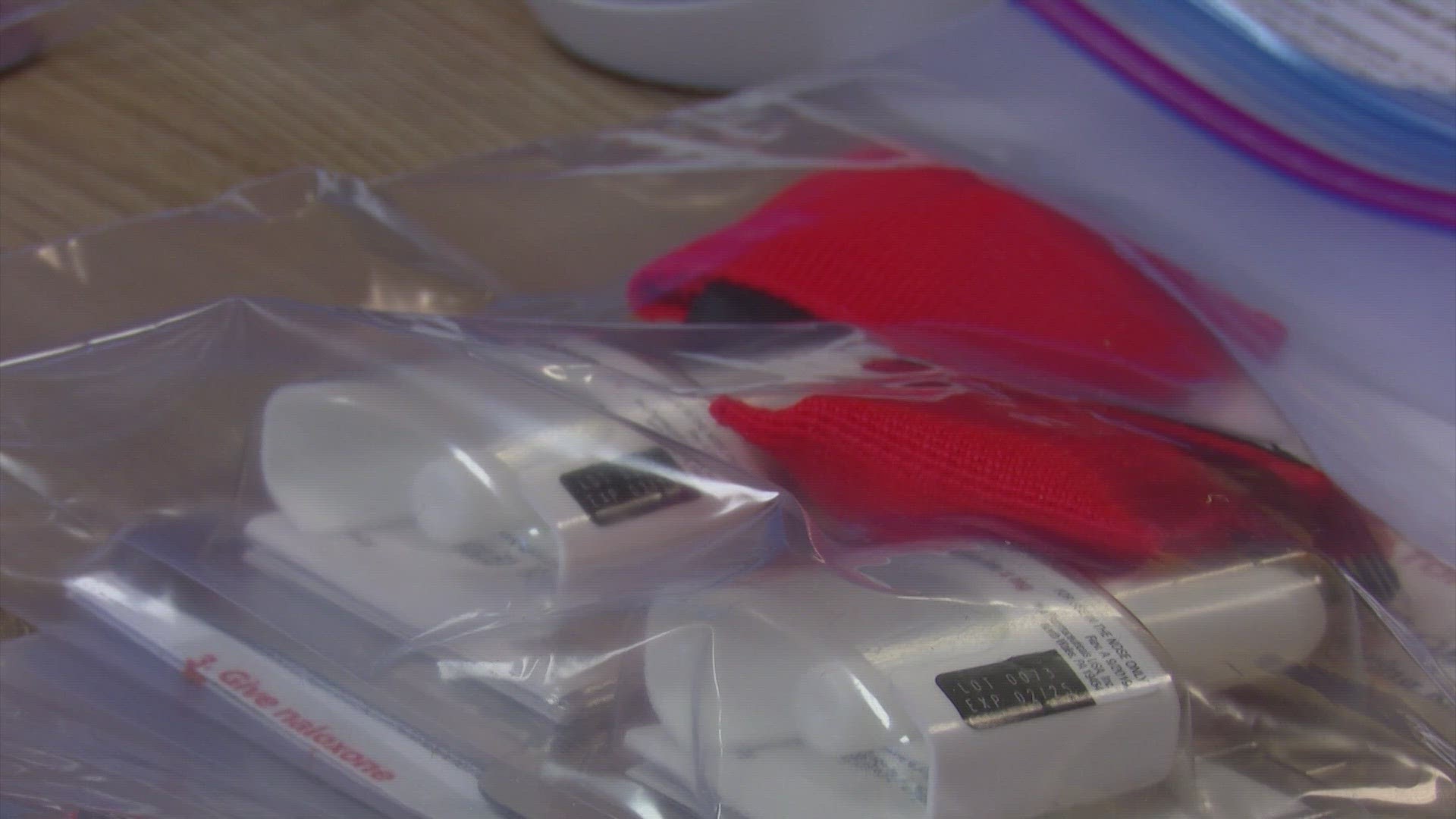MONROE, Wash. — It's graduation day for Tabbatha Maxwell.
For the past three weeks, she's been in a rehab center getting sober.
"I was fully functioning," Maxwell said. "No one could tell I was using."
Tabbatha had a job, insurance, a newborn, and a meth habit.
She turned to drugs when life got too stressful and she got depressed.
"You hate yourself for it when you're on it, but also, you're not thinking about yourself when you're on it," Maxwell said.
Maxwell wanted to get clean, but could not find a place that could take her.
She was told by a fellow user if she had fentanyl in her system she'd have a better chance of getting admitted to a recovery program.
Desperate and knowing full well it could kill her, and leave her baby motherless, Maxwell took a single fentanyl pill.
"I'd never done it before," Maxwell said. "You feel like either I'm gonna die or I'm gonna get well. I guess it's a 50-50 shot."
Maxwell ended up at EvergreenHealth Recovery Center in Monroe where they did not take her insurance.
So, they enrolled her in a new scholarship program that provides free treatment for unhoused, uninsured, or underinsured residents of Monroe.
"We have kids, we have families, and now we have hope," Maxwell said.
The program is a partnership with social workers in the Monroe Police Department. It's paid for by federal COVID funds with the assistance of the City of Monroe, Snohomish County and the Association of Washington Cities.
"We have people who would like to seek drug treatment through other programs who aren't able to get into the treatment," said Geoffrey Thomas, Monroe mayor. "This means a lot to our community.
"We're sometimes able to get people into treatment the same day, if not within hours," said Rachel Adams, Monroe Human Services coordinator. "We're really lucky to have such a great support network."
So far 14 people have gotten help they otherwise wouldn't have. Seven have graduated.
Recovery Center Director Eric Britt said the program is tapping into an underserved and often unseen population.
"These people are out in the workforce, taking care of their families, driving on our roads so our ability to reach that population is critical," Britt said.
As she packs her bag and prepares to begin her new life, Maxwell is grateful for the program giving her a second chance.
"Without the scholarship program I would be dead or wanting to die," Maxwell said.
Maxwell is on her way to a six-month inpatient residential treatment center specifically for parents.
After that, she'll be connected with supportive housing and hopefully be reunited with her baby.
"I have hope, which is something I haven't had for a long time," Maxwell said.

